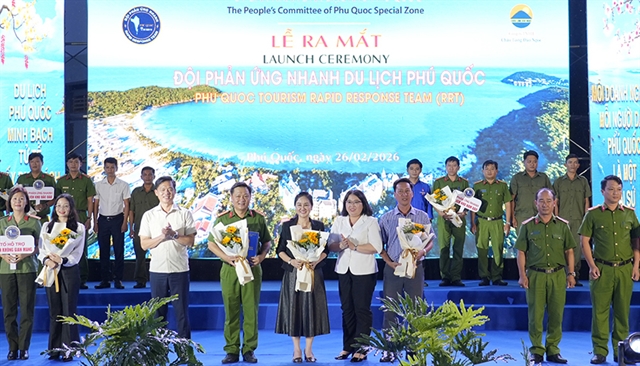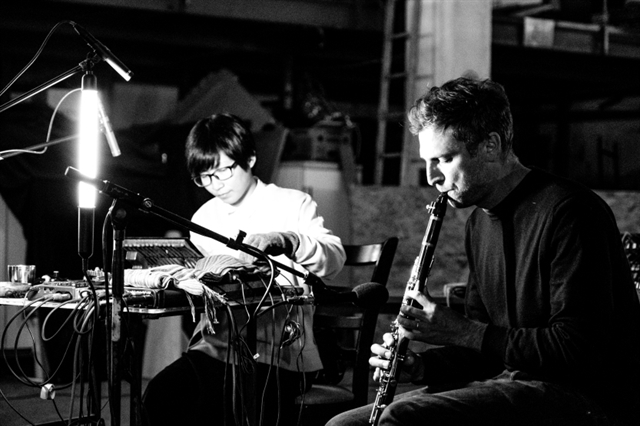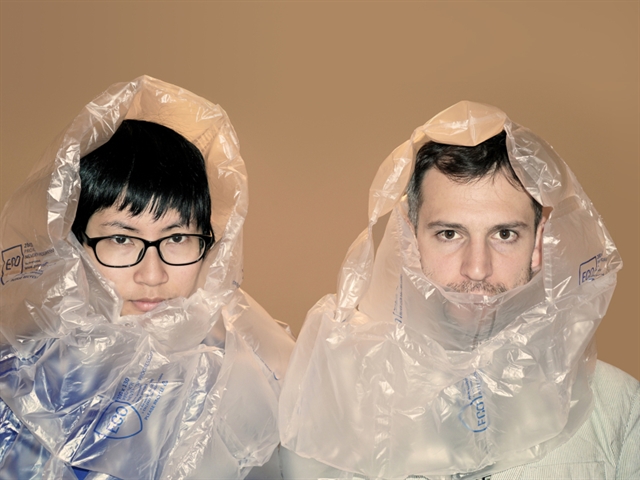 Life & Style
Life & Style

By Minh Thu
Austrian artist Gregor Siedl in collaboration with Vietnamese artist Cao Thanh Lan are taking music to a whole new level.
Siedl feels music is so much more than just sounds. He believes it is an art form, and one that needs experimentation.
Together with his friend, Siedl has developed many musical projects to bring Vietnamese audiences different experiences in contemporary art.
The pair work in the field of contemporary electronic and instrumental music, music theatre and sound art.
They received the award New Austrian Sound of Music 2018-2019 in the category Contemporary Music and have been featured at art institutions, international festivals and venues around the world. They have also given workshops on contemporary composition and improvisation around the world, including Hà Nội.

|
| Duo Siedl/Cao have developed many sound-installations that are related to social and cultural topics in Việt Nam. Photo courtesy of the artist |
The first time Siedl visited Việt Nam was in February 2013 during Lunar New Year holiday. He spent his time with a Vietnamese family and to get first hand introduction to local customs and culinary traditions.
“I really enjoy coming to Việt Nam, for the culture, people and nature,” he said. “It’s a beautiful country, indeed.”
Siedl soon nurtured a love for Việt Nam and began projects of contemporary music.
Việt Nam’s music scene is evolving quite fast and there is a welcoming atmosphere towards non-traditional ways of making music, he said.
Siedl and Lan studied at the Royal Conservatory of Music in Brussels, Belgium. There, they started to play together and develop their ideas of a personal approach to creating music.
“We come from a different cultural backgrounds but our common interest in sound, abstraction and playfulness has proven a good foundation for our collaborations,” he said.
Lan, 30, works as a sound artist, improviser and composer in Berlin, Vienna and.
They have developed many sound-installations that are related to social and cultural topics in Việt Nam.
The music performance "The Fifth Cardinal Direction" was premiered at the Hà Nội Opera House in 2017. It is inspired by tribal music and rituals from ethnic minorities in the northern region.
Their recent work incorporates site-specific sound installations and audience participation.
They research relationships and balance between visual and audio elements, intentionally and unintentionally, natural and artificial, human and machine.

|
| Duo Siedl/Cao work in the field of contemporary electronic and instrumental music, music theatre and sound art. — Photo courtesy of the artist |
Audiences enjoyed a combination of unusual sound sources like Hà Nội traffic noise mixed with clarinet and Vietnamese smoking pipes.
The sound installations on plants drew much attention from audiences. They used two contact microphones to pick up vibrations from touches of people on the plants. The touches turn to midi signals and these midi signals then become sounds.
“Every object has a story, we just create a channel to connect people with the stories,” said Lan.
“We can expand the definition of sound. These objects can be very familiar to people, everyone knows what plants are, they grow them at home, water them but rarely we touch plants. With this sound installation, we bring new experience and interesting sensation for people, they can touch the plants gently or hard, play with them.”
Lan said she and Siedl always want to get audiences involved in the work.
“They make the artworks complete. Our projectcs focus on the reaction between audiences and sound installation,” said Lan.
Hà Nội itself brings inspiration for artists, Siedl said. He noticed the young generation in Hà Nội is exploring diverse and multiple approaches to express their ideas.
“Sound is how they communicate with the audience and it seems they are not restricted by genre or technique,” he said.
He said he very much enjoys listening to traditional Vietnamese folk music and has listented to music from ethnic minorities in Việt Nam such as Dao, Lô Lô and Mông.
He also appreciates ca trù (ceremonial singing), hát xẩm (blind buskers’ music), hát văn (spiritual singing), tuồng (classical drama) and cải lương (southern reformed theatre). From non-traditional music he likes to listen to music of Trịnh Công Sơn.
“Việt Nam has a rich history in traditional music and I am interested to learn more about it. The more I learn the more I realise how little I know about this topic,” he said.
Apart from music, Siedl said he also fell in love with Vietnamese food.
“It’s balanced, fresh, diverse, transparent, exciting and much more,” he said.
“It seems that in Việt Nam people know how to enjoy, take time to hang out with friends and family, meet in public areas, share tea, crack sunflower seeds, chat and laugh.”
This year, he was introduced to the way of making bánh chưng (glutinous rice square cake) for the first time.
“That was a lot of fun and home-made tasted even better after knowing more about the ingredients and where the tradition comes from,” he said. — VNS